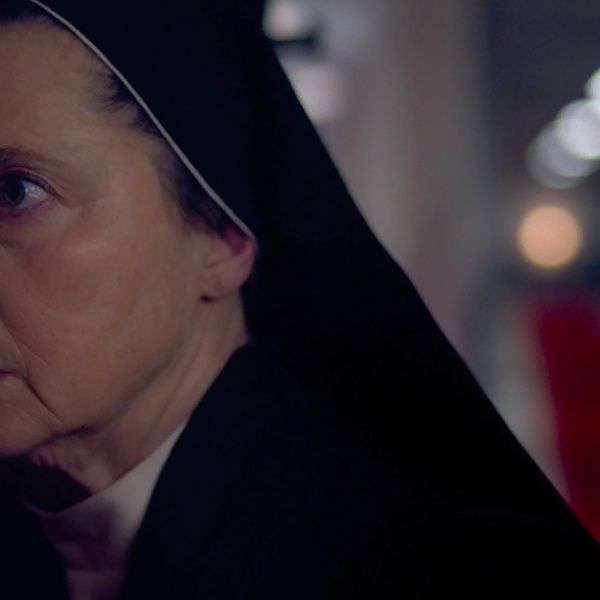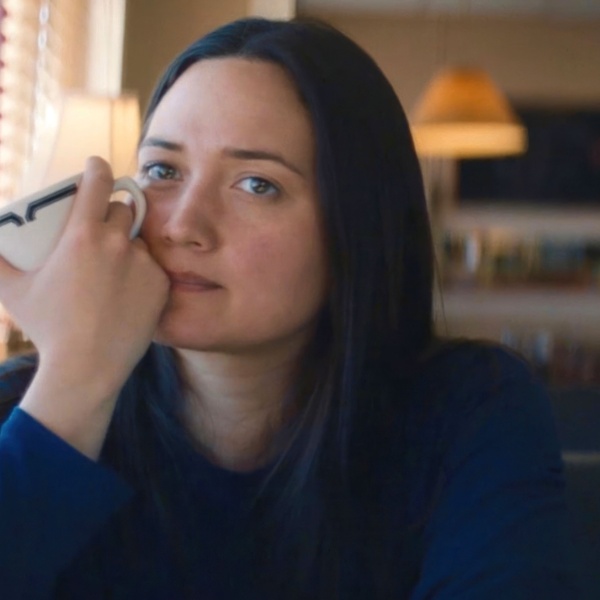On the website for MUBI, the international cinema platform describes itself in several ways: “A streaming service? A curator? A publisher? A distributor? A cinema lover? Yes.”
Yet in a recent online conversation hosted by Sundance Collab, the Sundance Institute’s educational service, MUBI Chief Content Officer Jason Ropell added another facet to MUBI’s motives: Netflix alternative.
Ropell, the former head of Amazon Studio’s film division, said in a revealing conversation with Sundance programmer John Nein that, while MUBI takes SVOD rights for both films it buys and produces in-house, it takes a more expansive approach to other revenue streams, from theatrical to PVOD.
“In contrast, Netflix will create or buy a film and it will only be on Netflix,” Ropell said. “It’s the exclusive access to the platform that’s their value proposition. Our job is to support films through every facet of the distribution chain.”
MUBI initially launched as The Auteurs in 2007 before rebranding in 2010; since then, its business has expanded in scope and identity several times over. Now available as a streaming platform in over 195 territories around the world, the company has recently become one of the more prominent distributors for international cinema in recent years, including Oscar submissions such as “Decision to Leave” and “Great Freedom.” At the same time, MUBI has invested in productions such as Mia Hansen-Love’s “One Fine Morning,” which sold to Sony Pictures Classics for U.S. distribution; last year, the company made an eye-catching acquisition of revered European sales entity Match Factory.
While MUBI founder and recent Academy member Efe Cakarel has been reticent to speak publicly about the company’s growing agenda in recent years, Ropell — who joined the company in 2020 — said that it was seeking a path to grow the business of arthouse cinema to suit the demands of the streaming era. “If we can globally aggregate an audience for this, we will start to see scale and we will start to be able to invest more in these films,” he said. “That helps us and it helps our mission.”
Ropell’s executive experience has added momentum to MUBI’s vast ambitions, which Cakarel outlined in a rare public conversation at last year’s Toronto International Film Festival. In a decade, he said at the time, “MUBI will be a studio, with its own production, distribution, direct to consumer, and editorial, and more — a modern media company.”
Ropell comes from that world. He said that his time at Amazon, when he oversaw the film studio previously run by Ted Hope, helped him grasp the challenges involved in getting auteur cinema made within the vast commercial expectations of major streamers. He recalled the daunting experience of having to fly to Seattle to screen ambitious projects such as Lynne Ramsay’s violent cinematic mood piece “You Were Never Really Here” to Jeff Bezos and other top Amazon executives far removed from the arthouse ecosystem.

“That took years off my life, but I learned a lot,” Ropell said. “I’m applying it now to something which I think is very, very worthy. The mandate is, broadly speaking, to support filmmaking that has a very distinctive point of view.” He added that MUBI operated from the conviction that international cinema “attracts a much larger global audience than many companies in this space believe.”
Upcoming MUBI releases in the U.S. include Argentina’s potential Oscar submission “The Delinquents,” a delectable crime-gone-wrong saga the company picked up at Cannes, as well as raunchy Sundance comedy “Rotting in the Sun.” This month, MUBI released Ira Sachs’ erotic romance “Passages.” All of these titles reflect a broader fixation on singular, director-driven filmmaking — and Ropell said it made offers on such projects based off data modeling around global potential. “There’s a calculation that gives us an efficiency number,” Ropell said. “For X amount, Y have watched, and that will give you a number. Then we’re also looking at how many new customers we think that can attract and we’ll do a calculation around that, more like a projection, and roughly assess what that looks like. That’s the only unique part of what we do.”
Soon, the company will launch Venice-premiering “Gasoline Rainbow,” the latest non-fiction character study from “Bloody Nose, Empty Pockets” directors Bill and Turner Ross. Ropell seemed to acknowledge that, given the ambiguity around the brothers’ methods, their latest, about a ragtag group of hard-partying teenagers on a road trip across the Pacific coast, wouldn’t be vying for Best Documentary this Oscar season. “I’ll let you decide whether that’s a doc, but I know the documentary branch has their opinion,” he said.
Like other recent MUBI releases, “Gasoline Rainbow” was co-financed by other partners, including documentary powerhouse XTR. “We need to be flexible,” Ropell said. “We are a relatively small company in a very capital intensive business. … We’ll do it the way we need to in order to be involved in the projects we need to be involved with.”
While he did not provide specific figures with respect to MUBI’s subscribers, the company’s global presence has led to a number successes well beyond the constraints of the U.S. market. Last year, for instance, while Cannes hit “Aftersun” was released by A24 in the U.S. and received a streaming release through the distributor’s output deal with Showtime, MUBI held streaming rights for the poignant father-daughter drama in a number of major European and Latin American territories last January, when it became the company’s most-streamed release.

“I wish every film was as definitive as that,” Ropell said. “Once you see it, there’s no question it’s a masterpiece. … The questions we ask ourselves are, ‘Is this unique, ambitious, and is this a filmmaker we expect to grow with over time?’ Then comes the question, ‘What’s the best way to bring this to an audience at the stage we’re seeing it?’”
That versatility is a striking contrast to the large streamers, which tend to chase all rights and hold onto them. However, Ropell gave Netflix credit for its initial investment in global cinema on a larger scale than most traditional studios, making aggressive plays for large-scale auteur filmmaking before scaling back in recent years. “Netflix built a market model for themselves where they could afford to pay more,” he said. “Once they had dominance in the marketplace, they were able to ratchet everything down. It’s a smart business, but quite brutal.”
Ropell added that the dwindling revenue for the competitive streaming market has made it harder to produce films on a larger scale. “Yes, there is downward pressure on budgets because there’s downward pressure on revenues,” he said. “One of our goals is to try to create an ecosystem where there is more effective way to get these films to audiences so we can pay more.”
That was why MUBI was looking beyond the pay one window of its streaming platform to shore up more revenue around other distribution opportunities for films that it makes or acquires. Ticking off revenue opportunities ranging from TVOD to airlines, Ropell put it simply: “We just look at all those revenue streams, line them up, and make a call.”
That doesn’t always mean profitable results. “We suck at doing it as much as everyone else,” Ropell said. “It’s incredibly difficult to come up with a number which is accurate. If people knew what those numbers really were, our business would be a lot easier. We do it to the best of our ability, use our heads to the best we can, and then roll the dice.”
Nevertheless, he said that the experimentation process was moving in a position direction. “I believe that we’re evolving towards a solution,” he said. “I’m hopeful, because I’m dedicating my life to this model, but I don’t think this exact model will be the ultimate model for a modern studio platform. I’m focused on continuing to try to evolve it.”





